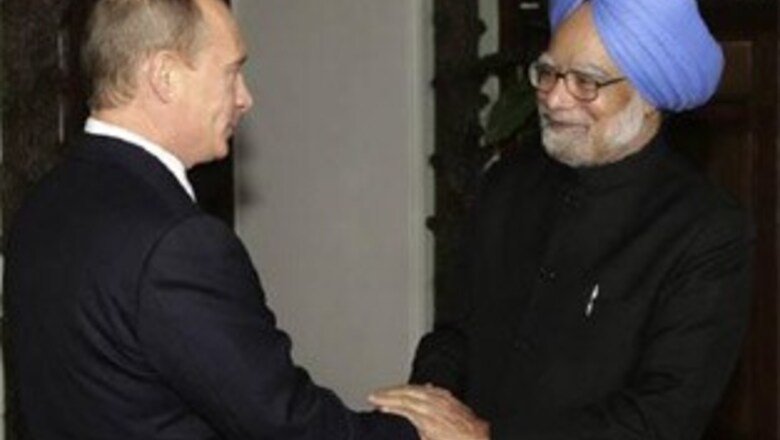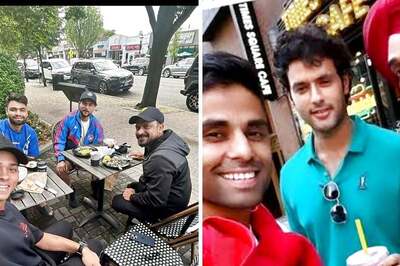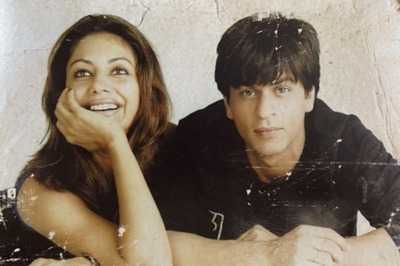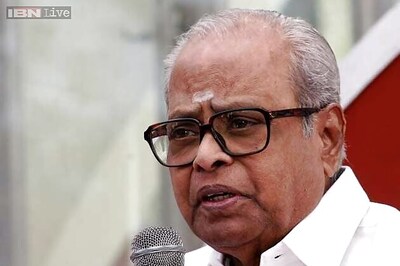
views
Moscow: A meeting between the Russian and Indian Prime Ministers in Moscow on Monday threw an awkward light on the contrasting fortunes of the two members of the BRIC grouping, where Russia is increasingly seen as a laggard.
Despite their differences, the two countries managed to set a number of agreements aimed at sharing technology and expertise that should promote their goal to grow trade to $20 billion by 2015 from $6.9 billion last year.
Russian Prime Minister Vladimir Putin, who presides over an economy expected to contract by over 8.5 per cent in 2009, looked visibly uneasy as his counterpart Manmohan Singh told him how the Indian economy was roaring ahead.
"The Indian economy, despite the global slowdown, has been growing at a rate of 6.7 per cent and this year it will be growing at a rate of about 7 per cent," Singh told the meeting attended by Russian and Indian officials and businessmen.
"Our savings and investment rates point to our ability to go back to the growth path of 9 per cent per year in about two years' time," Singh said, adding that India was "one of the fastest growing consumers" of Russia's vast energy resources.
Putin countered Singh saying Russia will push inflation back into single digits in 2009 and referred to month-on-month GDP growth, avoiding mention of Russia's dismal full-year economic performance.
The Russian leader has steered the country's energy-focused economy through its worst crisis in a decade, spending cash accumulated during the oil boom on stimulus policies and increased social benefits aimed at maintaining political stability.
But Russia is the only major emerging economies in the BRIC group, along with Brazil and China, that expects to see its GDP contract this year, prompting calls from some economists to drop the 'R' from the popular acronym.
Single digits
Despite relief from higher oil prices, Russia's main export commodity, the industry is stagnating, domestic demand remains subdued and the latest data showed unemployment edging up again.
Putin is seeking to diversify Russia's economy away from its oil sector by reviving industries where it traditionally had a competitive advantage, such as nuclear power or defense .
Talks with President Dmitry Medvedev earlier on Monday produced an agreement for Russia and India to cooperate in the civilian use of nuclear technology. They also signed agreements on arms sales.
Putin said Russia welcomed the participation of India's ONGC, a partner in the Exxon-led Sakhalin-1 oil and gas consortium, in oil and gas exploration projects in the Yamal peninsula and Tomsk region.
"Indian companies have the technologies and the ability to invest in both upstream and downstream activity," Singh said, adding that the two countries will aim to boost mutual trade to $20 billion by 2015 from $6.9 billion last year.
Singh offered to share Indian expertise in the production of generic drugs, seen as a potential growth sector in Russia, and welcomed investment from Russian companies specialising in infrastructure, engineering and construction.
Russia hosted BRIC's first summit in the city of Yekaterinburg in June claiming political leadership in the group. But the four countries have failed to come up with a comprehensive common agenda.



















Comments
0 comment